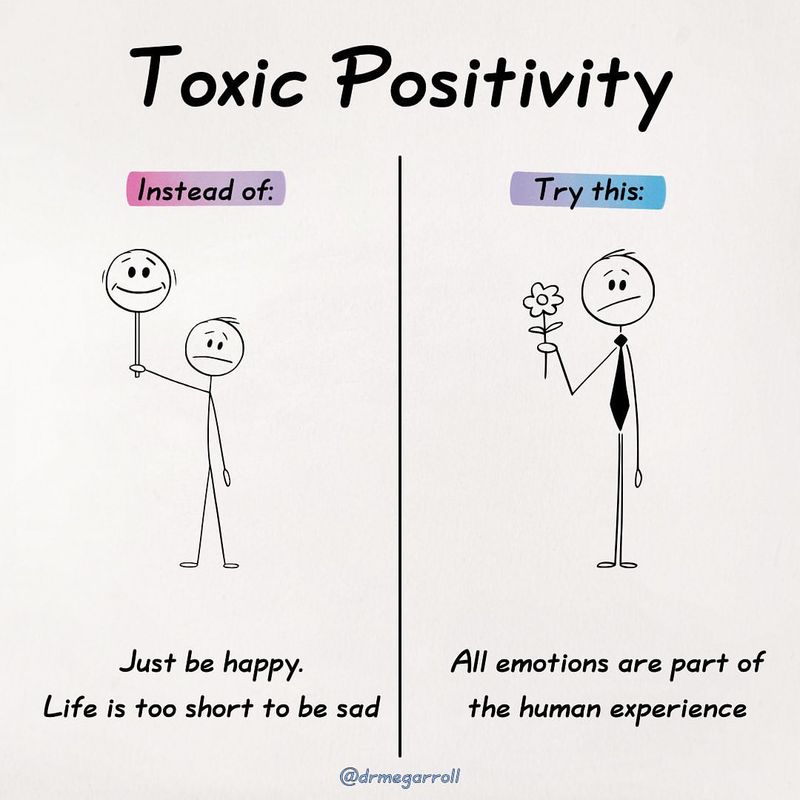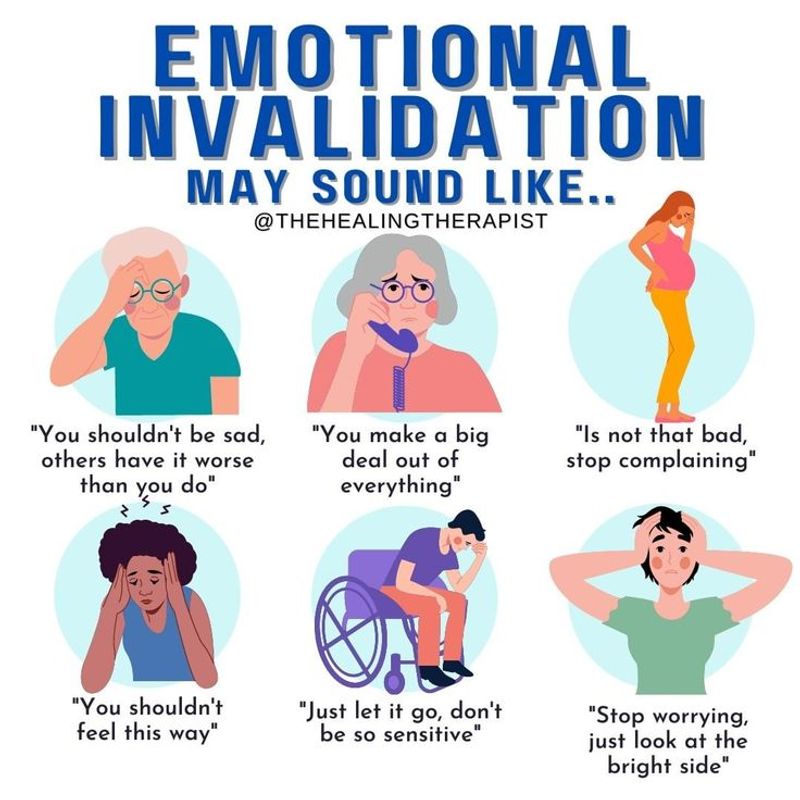15 Stupid Phrases To Never Say To Someone In A Crisis
Being in crisis is tough enough. The last thing you need is someone, perhaps well-meaning, throwing their misguided wisdom at you.
These aren’t just words; they’re like little stabs that make the whole experience lonelier, more frustrating, and frankly, more unbearable.
1. “Everything happens for a reason.”

Cool—tell that to someone mid-breakdown. When you’re drowning in emotions, this phrase feels like a superficial glossing over of deep pain. People often say this to comfort, but it unintentionally diminishes the real, raw hurt. It implies that suffering is justified by some cosmic plan, ignoring the immediate need for empathy and support.
Imagine being told this after a significant loss or during a mental health crisis. Instead of comfort, it might feel like a dismissal, pushing you to question your feelings rather than process them. A more helpful approach is to acknowledge the pain directly.
Saying something like, ‘I’m here for you,’ offers genuine support without minimizing the struggle. Remember, in times of crisis, being present and validating emotions can be more healing than offering philosophical platitudes.
2. “At least it’s not worse.”

Comparing pain doesn’t cancel it. When you hear this phrase, it feels like your unique struggles are being swept under the rug. The intention may be to highlight positivity, but it often backfires, making the person feel undervalued and misunderstood. Such comparisons trivialize your current hardships, suggesting they’re insignificant.
Even if things could indeed be worse, that truth doesn’t diminish the present pain. It’s like telling someone with a broken leg that they’re lucky it’s not both legs. Instead, a supportive listener should acknowledge the difficulty of the moment.
Try saying, ‘This must be really hard for you,’ to show understanding and empathy. This simple shift creates a space where the person feels seen and heard, rather than minimized or compared.
3. “Time heals all wounds.”

It’s not time—it’s what you do with it. Time alone doesn’t magically mend a broken heart or soothe intense grief. This phrase, often dispensed like a magic pill, underestimates the active process required for healing. It suggests passivity, as if simply waiting will resolve deeply embedded pain.
True healing involves engagement, self-reflection, and sometimes professional help. While time can create distance from the initial sting, it does not erase the impact. Instead, acknowledging the individual’s efforts in their healing journey fosters real support.
Encouraging someone by saying, ‘Take the time you need to heal,’ validates their ongoing struggle and respects their personal timeline. This approach empowers rather than placates, recognizing the work required to truly heal.
4. “God never gives you more than you can handle.”

This isn’t comforting—it’s gaslighting. Though meant to reassure, the phrase can feel like a cruel reminder of relentless struggles. It implies that if you’re overwhelmed, you’re somehow at fault for not handling it better. This can exacerbate feelings of inadequacy and isolation.
For those questioning their faith, it adds a layer of spiritual guilt, as if they’re failing a divine test. It’s more compassionate to acknowledge the overwhelming nature of their situation without attributing it to a divine plan.
Offering a simple, ‘I’m sorry you’re going through this,’ can be far more reassuring. It respects the individual’s personal experience without layering on expectations of faith or resilience that they may not feel capable of meeting.
5. “Stay positive.”

Toxic positivity isn’t support—it’s denial. While positivity has its place, forcing it on someone in crisis can feel dismissive and invalidating. This phrase often comes across as a directive to suppress genuine emotions in favor of a more palatable facade.
When you’re in pain, being told to ‘stay positive’ can feel like a denial of your reality. It pressures you to ignore your feelings, which can be exhausting and counterproductive. Real support involves embracing all emotions, not just the ‘positive’ ones.
A better approach might be, ‘It’s okay to feel how you’re feeling,’ which acknowledges the full spectrum of human emotion and offers a safe space for expression.
6. “Other people have it worse.”

And yet this still hurts. This phrase is a classic in the realm of minimizing language. While perspective can be valuable, using it to belittle someone’s experience is harmful. It suggests a hierarchy of suffering that invalidates their current emotional state.
When you’re hurting, the last thing you need is a comparison that makes your feelings seem trivial. It’s crucial to acknowledge that everyone’s pain is unique and valid, regardless of how it measures against others’.
Instead, consider saying, ‘Your feelings matter, and I’m here for you.’ This response shows empathy and reinforces the importance of the individual’s experience without drawing unnecessary comparisons.
7. “You’re so strong.”

Strength shouldn’t be praised when someone’s falling apart. While meant as a compliment, this phrase can feel like a burden. It often implies an expectation of resilience, which can be isolating for someone already struggling to cope.
When you’re barely holding it together, being told you’re strong can feel like you have to meet an unreasonable standard. It may lead to a reluctance in expressing vulnerability, fearing it would disappoint those who see them as ‘strong.’
Acknowledge their struggle with, ‘It’s okay to not be okay.’ This validation provides relief from the pressure of maintaining appearances and encourages a more honest expression of feelings.
8. “Just let it go.”

As if grief is a light switch. This phrase oversimplifies the complex process of healing from emotional wounds. When someone tells you to ‘just let it go,’ it can feel dismissive, as if you’re expected to instantly overcome profound feelings.
Grief and emotional pain require time and often thorough processing. Suggesting it’s as simple as releasing a physical object undermines the depth of their experience. It’s akin to saying, ‘Your feelings shouldn’t matter this much.’
A more supportive comment could be, ‘Take your time with this,’ emphasizing patience and respect for their unique journey without pushing them to rush through it.
9. “This will make you stronger.”

Not everyone needs a “lesson” in pain. This phrase can feel like you’re being told your suffering is somehow justified or necessary for personal growth. While adversity can indeed lead to resilience, it’s not helpful to assert this during someone’s darkest moments.
Suggesting that pain is a pathway to strength can invalidate the immediate need for compassion and understanding. It assumes that the person will emerge stronger, which can feel like pressure rather than support.
Instead, offer empathy with, ‘I’m here to support you,’ acknowledging their current struggle without assigning future expectations or lessons. This approach respects their journey without forecasting their outcomes.
10. “You should talk to someone.”

Yes—but don’t dump responsibility and walk off. Advising someone to seek help is valid, but it shouldn’t be the end of your support. This phrase, when said without follow-up, can feel like a brush-off rather than genuine concern.
Suggesting professional help is important, but it should come with a willingness to stay involved in their journey. Simply pointing them towards a therapist without offering personal support might leave them feeling abandoned.
Instead, say, ‘I’m here for you and think talking to someone could help too.’ This indicates both personal support and professional advice, showing you’re involved and care beyond the suggestion.
11. “You’ll find someone else.”

Replaceable is not a vibe. This well-meaning phrase often follows a breakup or loss, intending to instill hope for future relationships. However, it diminishes the significance of the lost connection, implying it’s easily replaceable.
After losing a meaningful relationship, hearing this can feel invalidating. It assumes that moving on is simple and undermines the emotional weight of the current loss. Grief deserves acknowledgment, not a swift push towards the future.
Consider saying, ‘I’m sorry for your loss; I’m here if you need me,’ offering a safe space to grieve without timelines or expectations for moving on.
12. “Everything will work out.”

Blind optimism isn’t support. While this phrase might aim to offer hope, it can sometimes come across as dismissive, suggesting that the complexities of the situation will magically resolve themselves without effort or support.
In times of crisis, assurance without action can feel like empty words. People need to feel supported in the present, not just reassured about an uncertain future. It’s important to be realistic while remaining hopeful, without ignoring the gravity of the current situation.
Instead, try, ‘I’m here with you through this,’ to show solidarity and commitment to helping them navigate through their challenges, rather than just promising a better outcome.
13. “At least you have your health.”

Empty gratitude shaming helps no one. This phrase is often used to remind someone of their ‘blessings,’ but it can ring hollow when they’re grappling with other significant issues. It implies that health should overshadow all other struggles, which isn’t always realistic.
While health is undeniably important, it doesn’t negate other forms of suffering. Using it as a yardstick for gratitude can feel like pressure to ignore legitimate concerns and feelings.
A better approach might be, ‘What you’re experiencing is tough, and I’m here for you,’ acknowledging the complexity of their situation without forcing comparisons or gratitude.
14. “Try not to think about it.”

Because that’s totally how the brain works. This phrase is often intended as a distraction technique, but it’s unrealistic to expect someone to simply switch off their thoughts, especially in a crisis. It can feel like a denial of their reality and an oversimplification of complex emotions.
Being told to avoid thinking about something can push emotions deeper, creating a sense of shame or inadequacy for not being able to ‘turn off’ the pain. It’s more supportive to encourage expression rather than suppression.
Instead, say, ‘I’m here to listen whenever you’re ready to talk,’ providing an open door for when they’re ready to share their thoughts and feelings, allowing for a healthier processing of emotions.
15. “It’s part of God’s plan.”

Sometimes silence is the holiest thing you can offer. Attributing suffering to a divine plan can alienate those struggling with faith, making them feel as if they’re being judged or tested. This phrase can add a layer of spiritual conflict to an already overwhelming situation.
For some, it might offer comfort, but for others, it introduces questions about their worthiness or the fairness of their suffering. It’s crucial to recognize the individual’s spiritual journey and offer support that respects their beliefs.
Silently being present or saying, ‘I’m here for you,’ can often provide more comfort than trying to assign meaning to their pain, allowing space for personal reflection and healing.







